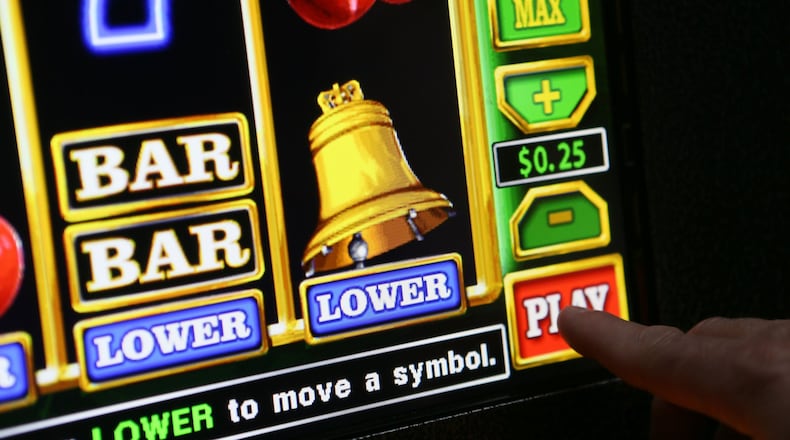Thomaston Police last week conducted morning raids on seven local businesses, arresting a dozen people and seizing more than $61,000 in cash, the culmination of months of undercover work into illegal video gambling.
This raid is notable for several reasons:
- Thomaston is small, with less than 10,000 residents. Too small, one would think, to play host to a daisy chain of mini-casinos;
- The raid came a day before a new law went into effect moving the video gambling machines fully under the regulatory and accounting authority of the Georgia Lottery; and,
- It was a time- and manpower-consuming effort. Five of the Lottery's seven inspectors and a third of the city's police force took part in the raids.
Acting Police Chief Capt. Sidney Corley said investigators found bundles of cash everywhere -- in boxes behind the counters, hidden in bags in storerooms and locked inside safes hidden in the floor. Corley said they even seized a re-purposed plastic container that once held peppermints stuffed to the brim with bills.
The arrests effectively shut down a third of the locations in the city licensed to have the games. Corley said the operation could have been larger.
Credit: Chris Joyner
Credit: Chris Joyner
“The only reason we stopped at seven is we were running out of manpower to do search warrants,” he said. “I’m sure we could have got every single one of these.”
With so many stores allegedly offering cash payouts, Corley said it is hard to believe any of the locations are “legit.”
The raids illustrate the problem the state has with reining in the rogue elements associated with so-called "coin-operated amusement machines." In 2001, the Georgia General Assembly attempted to outlaw the games, banning what was then known as video poker. Over the years the machines adapted to skirt the ban while industry officials worked with friendly politicians to regulate, rather than outlaw, video gambling.
The effort culminated in 2013 when the General Assembly moved the regulation from the Georgia Department of Revenue to the Lottery and set up a centralized, automatic accounting system officials believe will make the operators heel to the law.
Beginning Sunday, The Atlanta Journal-Constitution takes a look at the difficult task regulators face in their attempts to bring this gray-market business into full compliance with the law and at how industry insiders have fought their way back from semi-exile.
Take a look at this map showing the locations raided by the police.
Those are just the ones they shut down. Corley said the town has about 20 licensed machine operators and they aren't hard to find.
Virtually every corner grocery and gas station along strip a few blocks wide and no more than five miles long boasts has a corner dedicated to "amusement" machines -- video terminals with blinking lights and spinning images that look to the casual observer like a slot machine. These machines are legal in Georgia as long as winners are paid in store credit.
Credit: Lois Norder
Credit: Lois Norder
When he opened up one of the machines shut down during the raids, Corley was stunned.
“I was surprised at how many $100 bills we found,” he said, “some stacked on top of each other.”
That players sat and fed $100 bills into the games is a signal that there was something more at stake than the chance to win a Snickers bar, he said.
Earlier this week, at one of the locations targeted by the raid, a line of five machines blinked and whirled. No one was playing and a clerk behind the counter said the bill collectors on them were broken, but she said a repairman was on the way.
When asked, the clerk acknowledged the raid, but she said another business that also was raided was already back up and running.
"They have them everywhere," she said. "Even in the restaurants."
Lottery officials say there about about 25,000 video gaming machines in about 5,000 locations. All of them are supposedly hooked up to the state's accounting software as of this month, but that will not stop operators who insist on violating the law by paying out cash. Stopping that will be up to the Lottery's relatively small fraud squad and local police to combat.
Corley said he thinks most of the store owners view the arrests a minor setback.
"I imagine they just consider it the cost of doing business," he said.
About the Author
Keep Reading
The Latest
Featured






